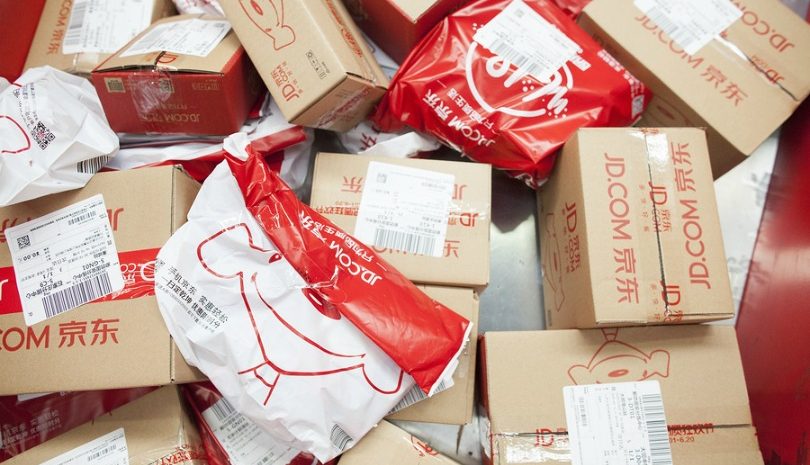Chinese e-commerce giants exchange barbs on Weibo

On its official Weibo account, China’s second-largest e-commerce platform JD.com claims “some e-commerce sites” have forced brands and merchants to sign exclusive deals.
While the accusation – jointly published on online flash sale site Vipshop – is vague, the only other platform as dominant as JD in that space is Alibaba’s Tmall site, reports Jing Daily.
JD and Vipshop say in the statement they have received many complaints from merchants and brands claiming that if they did not work exclusively with some e-commerce platforms, they would face penalties such as reduced marketing resources, decreased search results and would even be blocked.
“This e-commerce platform has frequently abused its monopolistic power to force merchants to choose only it,” says the statement. “The enforcement has seriously infringed upon brands’ business autonomy and consumers’ rights.”
Noting that such actions may violate China’s Anti-Monopoly Law, the statement urges the government and industry regulators to step in and regulate the behaviour of “some e-commerce platforms” to ensure fairness in the market.
Two hours after the release of JD’s statement, Tmall published a response on its official Weibo account, calling JD’s act “pengci,” a Mandarin term commonly used to describe an opportunistic move by a person who pretends to be a victim in order to extort compensation.
And rather than identify JD by name, Tmall’s response also refers to “some e-commerce platforms”.
However, it does admit that a growing number of brands have signed deals to work with the platform exclusively, but voluntarily.
Tmall continued its counterattack by saying “some platforms” change the price of products and inventory without the brand’s authorisation.
Some Chinese domestic sites last month reported that JD treated brands on its platform unfairly during the 618 shopping festival. Tang Dafeng, the founder of the Chinese womenswear brand Liebo, took to Weibo to confront JD for unlawful practices.
Dafeng claims that on June 2, JD closed the brand’s access to its flagship store without authorisation, causing Liebo to lose control over prices, inventory and more. Liebo had not applied to participate in the JD event, but was included anyway and forced to offer a discount of 62 per cent, which the brand could not afford. On June 18, Liebo filed a lawsuit against JD and has since officially shut down its store on the platform.
Most Weibo posts about the turn of events side with Alibaba and its contention that JD’s statement was an act of “pengci”.
This story first appeared on sister site, Inside Retail Asia.
Comment Manually
You must be logged in to post a comment.

No comments